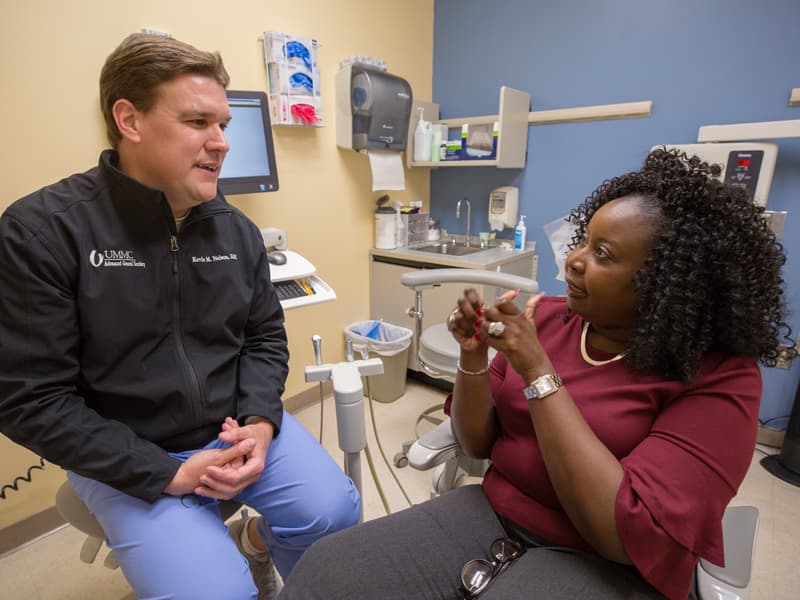Newsroom
ENT Articles and Podcasts
 | The Importance of Sleep on Cognition and Overall Health We know how refreshing a good night's sleep can be, but have you ever thought about the overall relationship between sleep and cognitive health? This program, led by Andrea Lewis, MD, FAAOA, will explore the physiological effects of sleep apnea on your brain and overall health, how it is diagnosed and treated, and ways to improve your sleep habits to promote brain health and healthy aging. Watch the video here. |
 | Salivary Stones: Symptoms and Treatment Salivary stones are small stones, similar to kidney stones, that form in the glands of the mouth. Learn about this condition and its treatment. Read more. |
 | How to Treat Hoarseness As our bodies age, so do our voices. Josie Alston, Clincal Director at the UMMC Voice and Swallowing Center explains hoarseness and provides tips to help you get your voice back. |
 | The ABCs of Nosebleeds Do you suffer from nosebleeds? Also called epistaxis, nosebleeds can be prevented by keeping the inside of your nose moist. Learn more about epistaxis prevention and treatment here. |
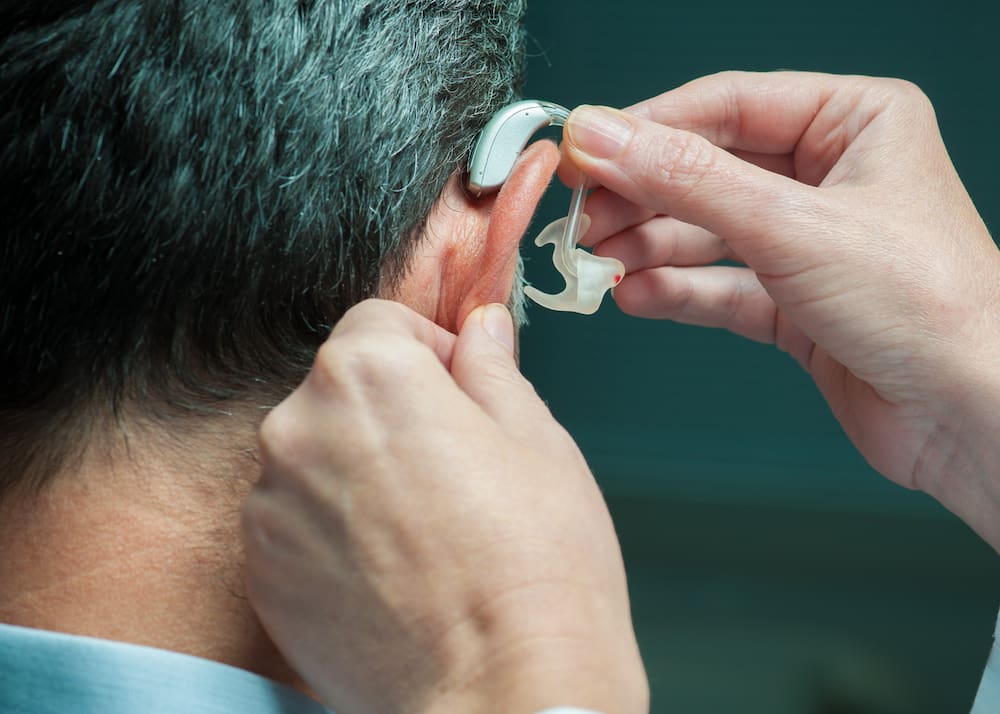 | Should I Purchase Hearing Aids Online? There are many health care realted products available for purchase online, but should hearing care be one of them? UMMC audiologist Dr. Mary Frances Johnson weighs in on whether the convenience of purchasing hearing aids online is worth it. Read more. |
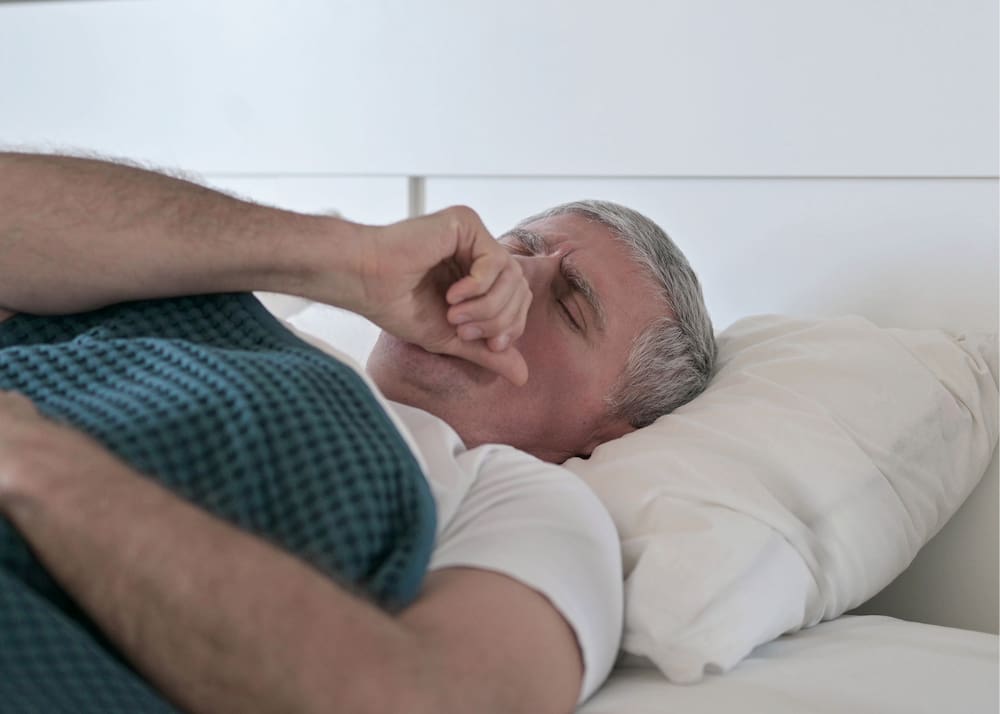 | What is Laryngeal Reflux? Laryngeal reflux can cause permanent damage to your throat and vocal chords. Learn about this common condition and the symptoms to look for. Read more. |
Tympanoplasty for Ear Drum Repair Not only can a hole in the ear drum make you more susceptible to ear infections, it can also be a cause of hearing loss. Fortunately, a short, outpatient procedure is available to repair the ear drum and reverse hearing loss. Read more. | |
 | Cognition and Swallowing Among the Common Challenges Persisting for Many Americans After COVID-19 Learn how speech-language pathologists can help patients regain health and quality of life after COVID-19. |
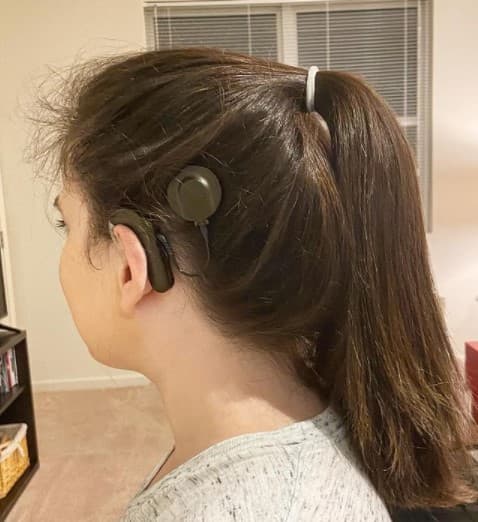 | Cochlear implant significantly improves quality of life for UMMC audiology extern Lauren was in the right place at the right time when hearing loss in her left ear progressed to a point that her hearing aid ceased to provide the clarity she needed to communicate. Read more. |
 | Don't Let Swimmer's Ear Sink Your Summer If you’ve ever experienced an ear infection, you know how uncomfortable and painful it can be. Swimmer’s ear is a common infection often occurring after water gets trapped in the ear canal. With swimming season in full gear, learn how to spot this condition before it sinks your summer. Read more. |
 | Ears are the Window to our Health Recent research findings suggest cardiovascular health may be predicted by cochlea health. Read more. |
 | Falls pose highest risk of injury and of death from injury to older Americans Every 11 seconds, an older adult is treated in the emergency room for a fall. With balance controlled largely by the inner ear, people experiencing balance problems are encouraged to seek help from audiologists during May awareness month. Read more |
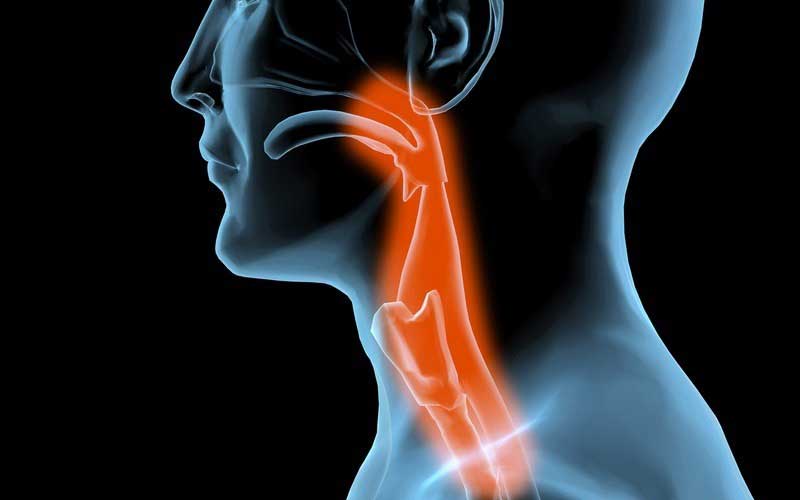 | Swallowing disorders common complication from stroke, Parkinson’s, and other medical conditions in adults Over 10 Million Americas are evaluated each year for swallowing difficulties; it's imperative to understand available treatment options. Read more. |
 | Hearing loss in school-aged children Better Hearing and Speech Month is a perfect time to seek help for kids who may suffer from hearing loss. Read more. |
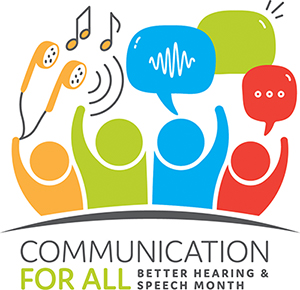 | Communication disorders among the most common childhood disabilities Speech, language and hearing disorders often go undetected and untreated for too long. Read more. |
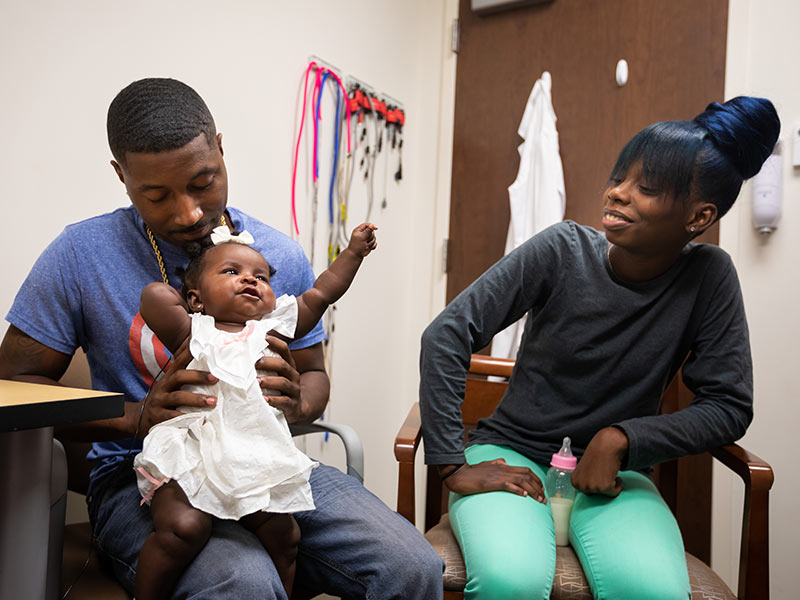 | Children’s of Mississippi cochlear implant patient among youngest in world At the young age of 3 months and 1 day, Kadence Lane made history for being the youngest patient ever to receive a cochlear implant at the University of Mississippi Medical Center and among the youngest in the world. Read more. |
Oral cancer patient fights to earn "Survivor" title At UMMC, cancer patients have an entire interdisciplinary team working together to develop the est treatment plan possible. Here, Jennifer Johnson discusses her journey and the caregivers she refers to as "Jennifer's Team." Read more. | |
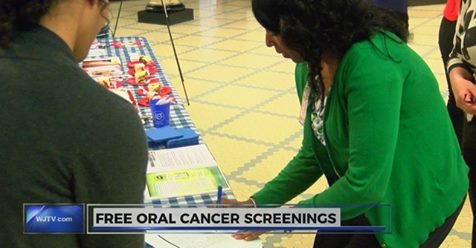 | ENT in the news WJTV was live at our annual Oral, Head and Neck Cancer Screening Event. Watch the interview.
|
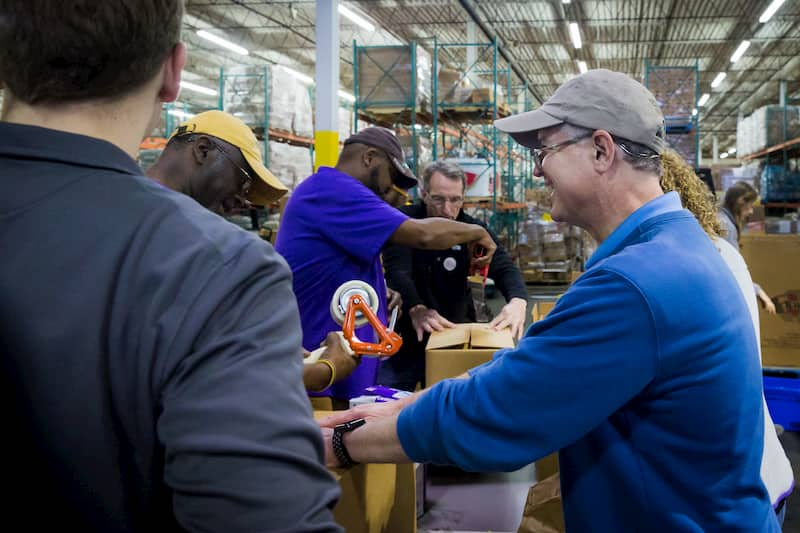 | Fighting hunger one box at a time The ENT department joins forces with friends and family to help fight hunger. Read more. |
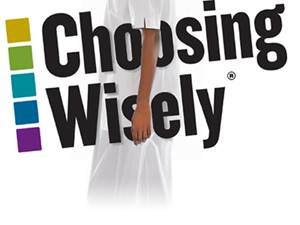 | Choosing wisely Otolaryngology teams' wise blood protocol earns national award! Read more. |
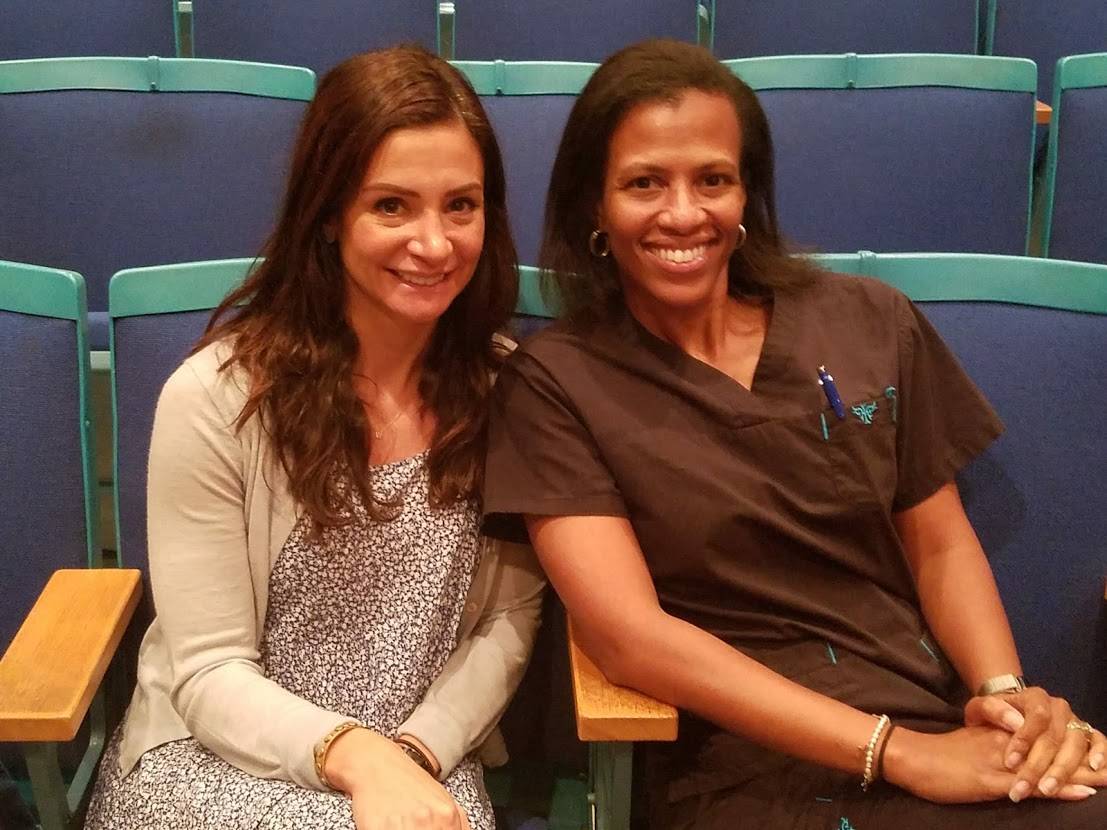 | Southern Remedy Radio Interviews Dr. Scott P. Stringer Dr. Michelle Owens and Dr. Ali Brown welcome in Dr. Scott Stringer, professor and chair of the department of otolaryngology at UMMC to talk about and take calls regarding issues with the ears, nose and throat. Listen to the podcast. |
 | Breaking out of a burnout |
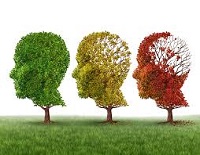 | Hearing loss and its effect on brain function Patients most commonly come to me with gradually-acquired sloping hearing loss. What does that mean? Well, most commonly, individuals are able to hear low pitch or bass tones better than they are able to hear high-pitch or treble tones... Read more. |
 | Is Hearing Loss Inevitable? It is a common misperception that hearing loss is inevitable. While it is true there are a greater percentage of persons with hearing loss as we age, it is not necessarily "age" causing hearing loss. Rather, so-called age-related hearing loss refers to our lifetime of general health, lifestyle (e.g. smoking, diet, etc.), noise exposure, use of ototoxic medications, and of course, genetics... Read more. |
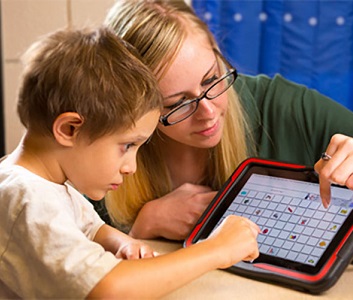 | Alternative means of communication What does alternative means of communication mean? There are many ways to communicate besides speaking. Alternative means of communication are other ways to communicate that do not involve spoken speech. In this day and age of technology, texting is a common means of communicating that does not involve speaking... Read more. |
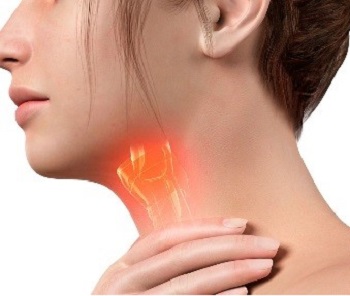 | Finally answered: A patient’s search to get her voice back Kris Williams battled laryngeal cancer - twice. As a 43-year-old, non-drinking, non-smoking patient, Kris came to the Department of Otolaryngology and Communicative Sciences at UMMC seeking answers for her rapidly worsening voice. Kris scheduled her consultation with Dr. John Schweinfurth, otolaryngologist... Read more. |
 | Dysphagia (dis-fey-juh): What does that mean? Dysphagia is the term used to describe difficulty swallowing that may result from a variety of causes. This is the term used when someone consistently has difficulty with chewing, moving food around in the mouth or keeping food or liquids in the mouth... Read more. |
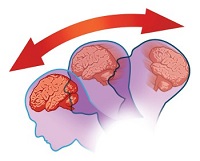 | Five facts about concussions With high school football well under way, this particular post will spotlight the topic of sports related concussions specifically looking at how they impact athletes and parents of athletes. Of note, high impact sports is not the only way to obtain a concussion... Read more. |
 | Teaching toddlers to talk Children are watching and learning from their environments and the adults around them all the time. Beginning to talk is an exciting part of development! When children are able to tell adults what they need and want, frustrations are reduced... Read more. |
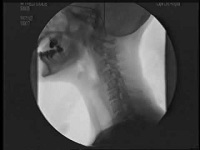 | Five facts about modified barium swallow studies First of all, what is an MBSS? An MBSS stands for "modified barium swallow study". This test can also be called a VFSS, which stands for "videofluoroscopic swallow study." An MBSS is an X-ray procedure performed in the Radiology department that looks at the anatomic structures in your head and neck area to make sure they are working properly while you are chewing, drinking and swallowing... Read more. |
 | Five facts about spoon feeding In first few months of life, babies learn all kinds of new and exciting skills. One of the most important skills is learning how to eat from a spoon. This is the beginning stages of moving away from the bottle and becoming an independent feeder. Here are 5 about spoon feeding that parents can use... Read more. |
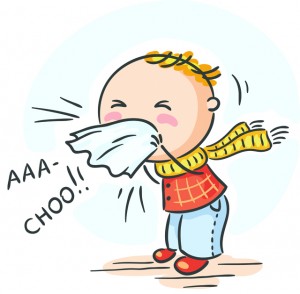 | A is for Autumn & A....chooo Autumn marks the threat of discomfort for seasonal allergy sufferers. Dr. Christopher E. Lee provides steps allergy sufferers can take to relieve the effects of fall allergies in this Wellbeing Magazine Article. |



